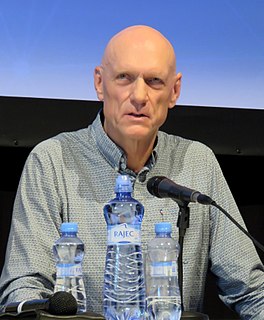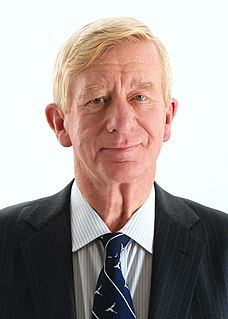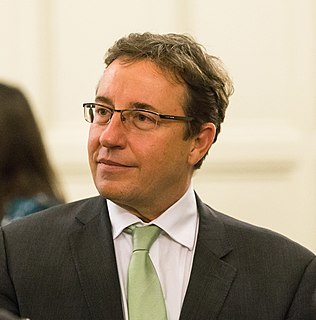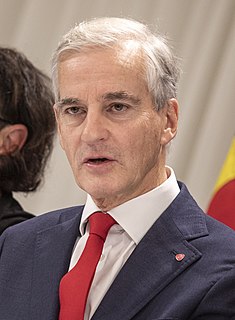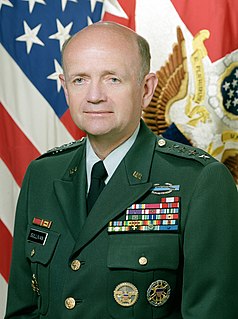A Quote by John F. Kerry
The bottom line is that the impacts of climate change can exacerbate resource competition, threaten livelihoods, and increase the risk of instability and conflict, especially in places already undergoing economic, political, and social stress.
Related Quotes
...in place of the Old Bottom Line of money and power, a New Bottom Line of Love and Generosity is possible. People of all faiths need to shape a political and social movement that reaffirms the most generous, peace-oriented, social justice-committed, and loving truths of the spiritual heritage of the human race.
But no matter how big the effort to push a propaganda line might be, climate change is bigger. This, undoubtedly and regrettably, is the biggest immediate long-term environmental challenge we face. A failure to concretely come to some policy outcome on climate change has not only a negative environmental impact but also social and economic consequences for us.
The United States is strongly committed to the IPCC process of international cooperation on global climate change. We consider it vital that the community of nations be drawn together in an orderly, disciplined, rational way to review the history of our global environment, to assess the potential for future climate change, and to develop effective programs. The state of the science, the social and economic impacts, and the appropriate strategies all are crucial components to a global resolution. The stakes here are very high; the consequences, very significant.
Human nature being what it is, peace must inevitably be a relative condition. The essence of life is struggle and competition, and to that extent perfect peace is an almost meaningless abstraction. Struggle and competition are stimulating, but when they degenerate into conflict it is usually both destructive and disruptive. The aim of political institutions like the United Nations is to draw the line between struggle and conflict and to make it possible for nations to stay on the right side of that line.
With Climate Change as a Security Risk, WBGU has compiled a flagship report on an issue that quite rightly is rising rapidly up the international political agenda. The authors pull no punches on the likelihood of increasing tensions and conflicts in a climatically constrained world and spotlight places where possible conflicts may flare up in the 21st century unless climate change is checked. The report makes it clear that climate policy is preventative security policy.
Climate Change is a national security issue. We found that climate instability will lead to instability in geopolitics and impact American military operations around the world. People are saying they want to be perfectly convinced about climate science projections. But speaking as a soldier, we never have 100 percent certainty. If you wait until you have 100 percent certainty, something bad is going to happen on the battlefield.






